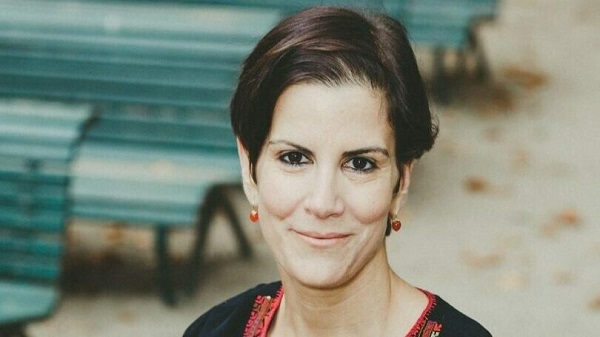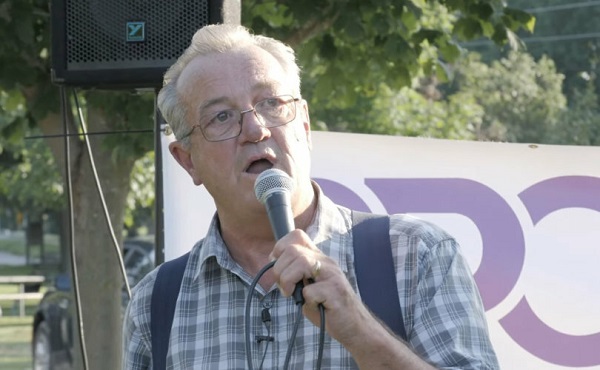Reem Alsalem
By Ordo Iuris
“Giving men so-called hormone blockers so they can compete with women – as some sports leagues do – doesn’t work”
United Nations Special Rapporteur Reem Alsalem, in a recent report, called on countries and sporting organization authorities not to allow “men who identify as women” to compete in female sports competitions.
- The U.S. representative to the UN accused Alsalem of using “degrading language” and of “bullying and gender misinformation.”
- Delegates from Great Britain, Canada, the Netherlands, France, Mexico, Colombia, and other Western countries raised similar objections.
- “Gender should be understood in its ordinary sense as biological sex,” Alsalem said during the report’s presentation, citing the agreement from the 1995 UN World Conference on Women in Beijing.
- Alsalem’s approach challenges the assumptions of Western and UN-backed gender policies, which are based on gender as a social construct unrelated to biological sex.
In her latest report to the General Assembly, the UN Special Rapporteur on Violence Against Women, Reem Alsalem, called on countries to stop allowing “men who identify as women” to compete against women and girls in sports. The U.S. representative to the UN, wearing a badge on his jacket with the colors of the LBGT and trans lobbies, accused her of using “degrading language” against trans athletes, as well as spreading “gender misinformation” and “bullying.” Delegates from Great Britain, Canada, the Netherlands, France, Mexico, Colombia, and other Western countries made similar accusations.
READ: Women’s sports are under siege by male participants, and no one seems to be stopping it
According to the report, allowing men declaring female gender into women’s competitions also leads to women and girls experiencing “extreme psychological distress,” due to physical imbalance with rivals, loss of fair competition and educational and economic opportunities, and violations of privacy (e.g., in locker rooms). Alsalem says that, in recent years, more than 600 female athletes have lost some 890 medals in more than 400 competitions, in 29 different sports, due to policies allowing men to compete against women.
“Giving men so-called hormone blockers so they can compete with women – as some sports leagues do – doesn’t work,” Alsalem said. It does not reduce men’s natural advantage, and strong hormone drugs can even harm an athlete’s health.
“Human rights language and principles must continue to be consistent with science and facts, including biological ones,” the expert argued. “Multiple studies have given evidence that athletes born males have a performance advantage in sports throughout their lives although this is most apparent after puberty.” Alsalem also mentioned the risk of injury to female athletes, which is knowingly increased when competing with biological men, whether they identify as men or women, the physical harm suffered by women against male athletes can be characterized as violence, according to the special rapporteur.
“Sex must be understood in its ordinary meaning to mean biological sex,” Alsalem said, citing a declaration from the 1995 UN World Conference on Women in Beijing. She continued by stating that “sex based on biology” has been established in the international human-rights catalog, as opposed to the concept of “gender.” According to Alsalem, the two categories should not be confused.
Julia Książek, of the Ordo Iuris Center for International Law, stated:
Reem Alsalem identified a major problem that became fully apparent at the Paris Olympics this year, when it became evident that women were no longer competing against women, but also men who ‘identify’ as women. The UN expert rightly noted in her report that athletes’ mental identification does not in any way affect their biological predisposition, which they have by being men. This type of situation is the result of lobbying in international law for the concept of ‘sex with social context’ – gender. The first event raising questions about the use of the ‘gender’ construct was the 1995 World Conference on the Rights of Women in Beijing. The debate around its final declaration stirred controversy precisely because of the definition of gender, listed in the text as ‘gender’ rather than ‘sex.’ Under pressure from a large group of UN member states, the conference chairman clearly stated that the word gender was used in the ordinary, generally accepted sense in which it appears in UN documents, recalling the non-binding declarations attached to the final declarations of UN conferences in the early 1990s. He also stressed that there was no intention to give a new meaning to the term that would differ from the generally accepted one. Reem Alsalem also noted this in her report.
The Ordo Iuris Institute has long opposed the gender lobby in sports. In 2020, the Institute’s experts prepared an analysis of a draft UN resolution, which maintained that athletes should be allowed to participate in competitions according to their subjective feelings about gender.
This article was originally published on Ordo Iuris’ English-language page. Edited and reprinted with permission.
Related



















